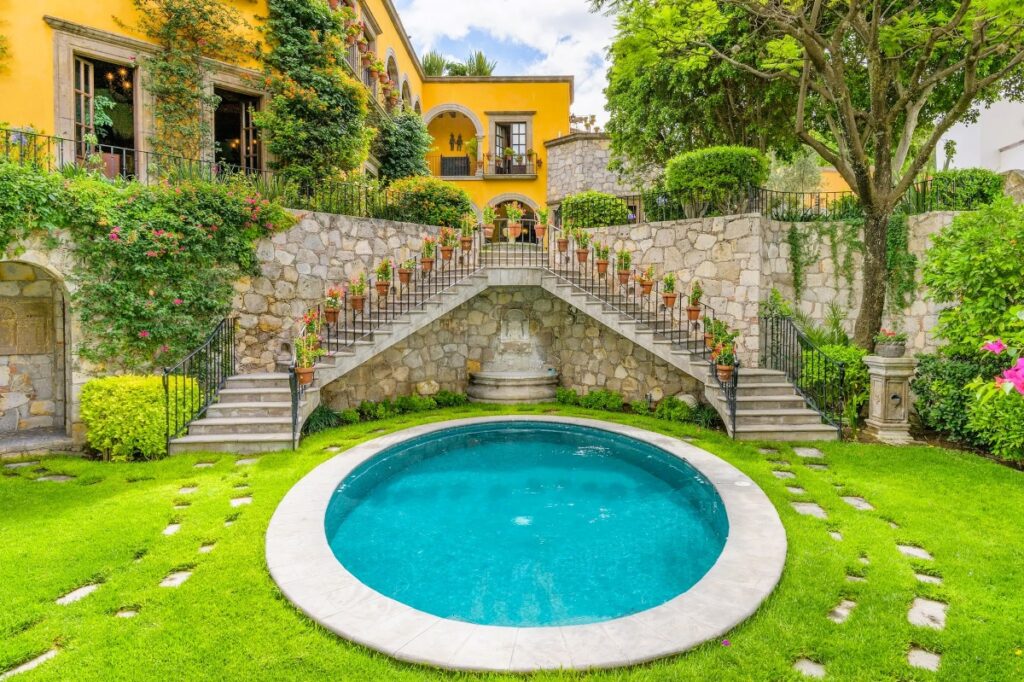The Complete Guide to Finding the Perfect Home for Expats in Mexico in 2024
In this guide, we’re going to dive deep into everything you need to know about finding your perfect home in Mexico as an expat. From sun-soaked beach towns to vibrant city centers, and from quaint colonial gems to off-the-beaten-path paradises, we’ll explore it all. I’ll share insider tips on understanding Mexican real estate laws, weighing the pros and cons of renting versus buying, and even how to finance your Mexican dream home.
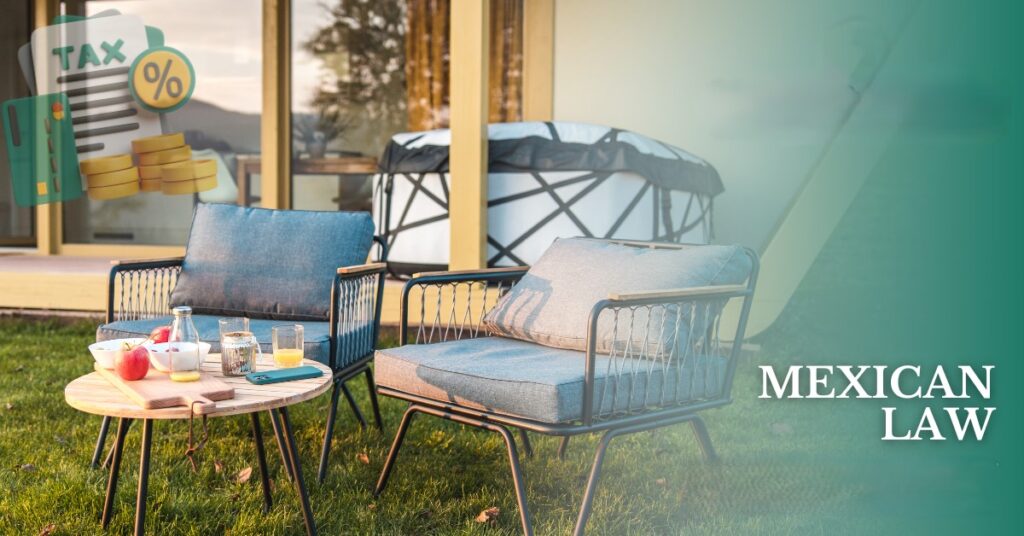
Understanding Mexican Real Estate Laws
Alright, let’s tackle the legal stuff. Don’t worry, it’s not as daunting as it sounds.
The Fideicomiso
Here’s something crucial to know: as a foreigner, you can’t directly own property in the “restricted zone” – that’s within 100 km of the border or 50 km of the coastline. But don’t let that burst your beachfront dream bubble! This is where the fideicomiso comes in.
A fideicomiso is a bank trust that lets you buy property in these areas. Essentially, the bank holds the title, but you retain all ownership rights.
Direct Ownership
If you’re looking at property outside the restricted zone, you can buy directly. No fideicomiso needed. This process is more similar to buying property back home.
The Notario Público
When buying a home in Mexico as an expat or otherwise, you’ll work closely with a notario público. Despite the similar name, they’re not like notaries in the U.S. These folks are highly trained legal professionals who handle all property transactions.
They will guide you through the process and ensure that everything is above-board. They’ll check for liens, handle the paperwork, and make sure you’re not buying a property with any nasty surprises.
Pro tip: Choose your notario carefully. Ask for recommendations from other expats or your real estate agent.
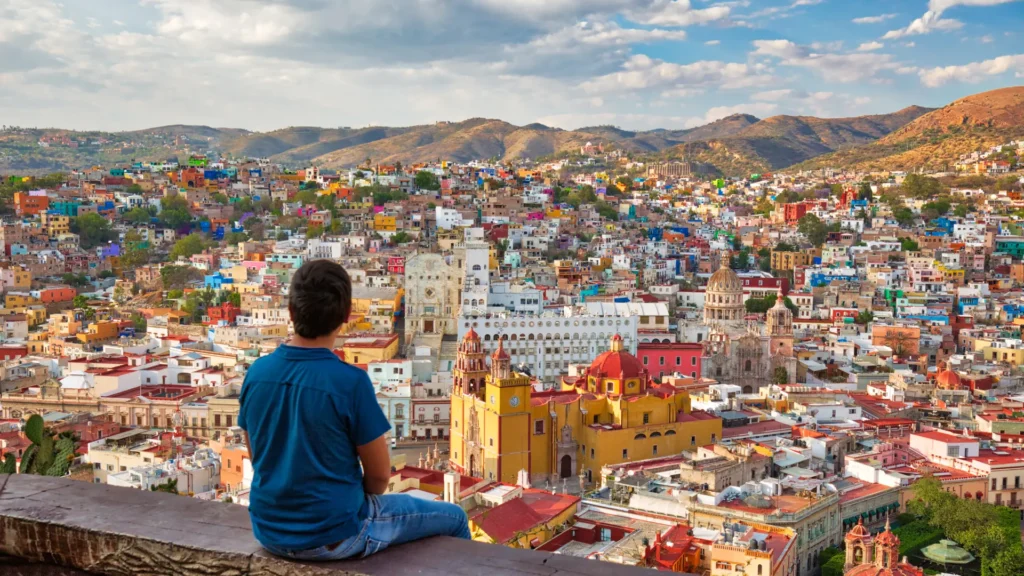
Types of Properties Available
Mexico offers a smorgasbord of property types. Let’s break them down.
Condos and Apartments
If you want a low-maintenance option, especially in beach towns or city centers, condos are fantastic. Many come with amenities like pools, gyms, and 24/7 security. Plus, they’re great if you plan to rent out your place when you’re not there.
Houses and Villas
For those who want more space and privacy, standalone houses or villas are the way to go. I’ve seen everything from charming colonial casitas (small houses) to ultra-modern villas with infinity pools. Just remember, with great space comes great responsibility (and maintenance).
Gated Communities
Gated communities are popular among expats, offering an extra layer of security and often a built-in social network. Many have clubhouses, golf courses, and other amenities.
Land for Custom Building
For the truly adventurous, buying land and building your dream home is an option. It’s not for the faint of heart, but I’ve met expats who’ve done it and love the result. Just make sure you work with reputable architects and contractors who understand local building codes.
Each type of property comes with its own set of considerations. Think about your lifestyle, budget, and long-term plans when choosing. And always, always view properties in person before making a decision. Photos can be deceiving.
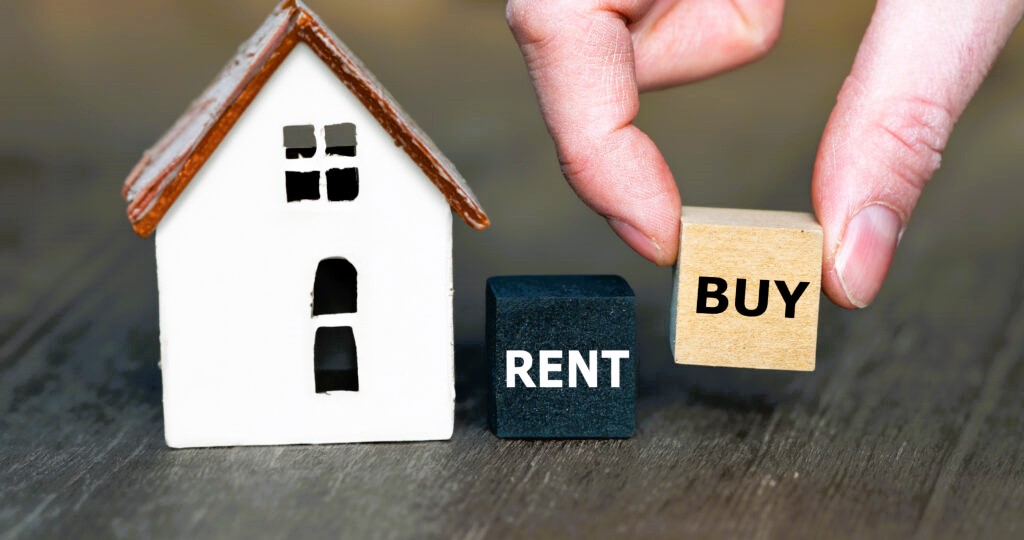
Renting vs. Buying
Should you rent or buy?
The Case for Renting
Here’s why renting can be a smart move:
- Flexibility: Not sure if Playa del Carmen is your forever home? Renting lets you test the waters without a long-term commitment.
- Learn the market: You’ll get a feel for different neighborhoods and property types before making a big investment.
- Easier exit: If you decide Mexico isn’t for you, it’s much easier to end a lease than sell a property.
Pro tip: Look for long-term rentals. You can often negotiate better rates for 6-12 month leases.
The Perks of Buying
Here’s why buying can be fantastic:
- Investment potential: Mexican real estate has been appreciating nicely in many areas.
- Personalization: Want to knock down a wall or paint the whole house purple? When you own, you canp.
- Stability: No landlord can suddenly decide to sell or raise your rent.
- Possible income: If you buy in a touristy area, you could rent out your place when you’re not using it.

The Home Search Process
Searching for a home in Mexico can be an adventure. Here’s how to make it a good one.
Working with Real Estate Agents
First things first: find a good agent. Look for someone who’s bilingual and experienced with expat buyers.
Tip: Ask for recommendations in expat Facebook groups or local chatrooms. Word-of-mouth is golden here!
Online Resources and Platforms
Websites like Vivanuncios and Inmuebles24 are great for getting a feel for the market. But remember, listings aren’t always up to date, so don’t fall in love with a place until you’ve confirmed it’s still available, and that’s in the same condition you’re expecting. And that whatever furniture is supposed to be there, really is.
Visiting Properties and Neighborhoods
Nothing beats boots on the ground. When you visit properties:
- Check at different times of day. That quiet street might be a noisy nightmare at night. If you hate the crowing of roosters or church bells at all hours, better check this first.
- Talk to neighbors if you can. They’re often a wealth of information.
- Look beyond the property. Is there a good grocery store nearby? How’s the internet connection?
Due Diligence and Property Inspections
Once you’ve found a place you love, it’s time for due diligence. In Mexico, this is crucial. Here’s what you need to do:
- Title Search: Make sure the property is free of liens and legally owned by the seller.
- Property Inspection: Hire a reputable inspector to check for structural issues, especially in older properties.
- Check Utilities: Ensure all utilities are properly connected and there are no outstanding bills.
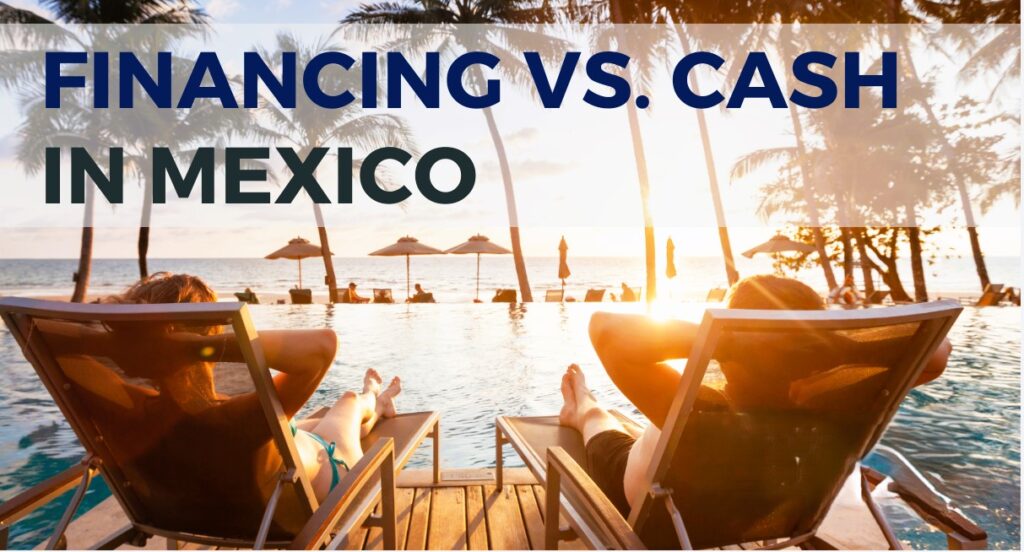
Financing Your Mexican Home
How are you going to pay for your slice of paradise? Remember that age and income are as important as they are back home. A 20-year mortgage is probably not going to be realistic for a retired 70-year-old.
Mexican Mortgages for Foreigners
Yes, it’s possible to get a mortgage in Mexico as a foreigner, but be prepared.
- Interest rates are typically higher than in the U.S. or Canada.
- You’ll need a larger down payment, often 20-30%.
- The process can be slower and require more paperwork.
- In addition to traditional financing institutions, there are often private investors available, which your real estate agent or broker may know about.
International Mortgage Options
Some U.S. and Canadian lenders offer mortgages for Mexican properties. This can be a good option if you have strong credit in your home country.
Cash Purchases and Wire Transfers
Many expats choose to pay cash, often by selling property back home. If you go this route:
- Use a reputable currency exchange service to get better rates.
- Be prepared for anti-money laundering checks. Large transfers will be scrutinized.
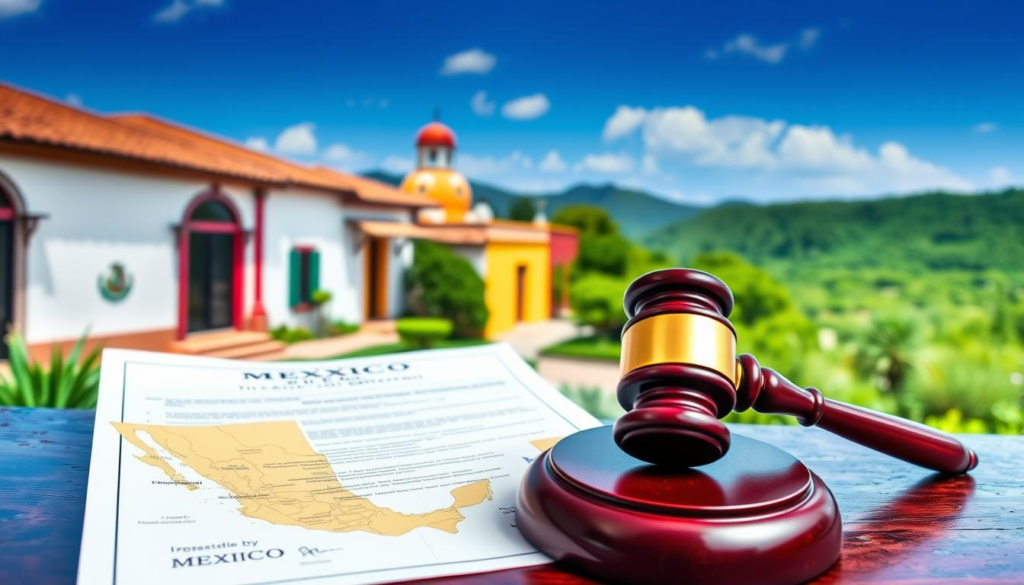
Legal Considerations and Documentation
Getting this right will save you headaches down the road.
Visa Requirements for Property Owners
Here’s some good news: owning property in Mexico can actually help you get a visa! If you invest a certain amount (it changes, but think around $200,000 USD), you might qualify for a temporary resident visa.
But remember, just because you own property doesn’t automatically grant you the right to live in Mexico full-time. You’ll still need to apply for the appropriate visa. Options include:
- Tourist Visa: Good for 180 days, but you can’t work.
- Temporary Resident Visa: Valid for 1-4 years.
- Permanent Resident Visa: No expiration, but harder to get initially.
Start your visa process at a Mexican consulate in your home country before you move. It’s usually easier and faster.
Tax Implications for Expats
Here’s the scoop.
- Property taxes: Known as predial, these are surprisingly low in Mexico, usually in the hundreds of dollars, compared to thousands at home.
- Capital gains tax: If you sell your property, you’ll pay this. But there are exemptions if it’s your primary residence.
- Rental income: If you rent out your place, you’ll need to report this income and pay taxes on it.
Remember, you might still have tax obligations in your home country too. I highly recommend working with a tax professional who understands expat taxes.
Insurance and Property Management
Don’t forget to protect your investment! Here’s what you need to know:
- Home insurance: It’s not mandatory, but it’s a smart move. Policies are generally affordable. Not as many people have this insurance as you might think, since houses are typically not made of material that burns easily.
- Liability insurance: This is especially important if you’re renting out your property.
- Property management: If you’re not living in your property full-time or you’re renting it out, a good property manager is a must.
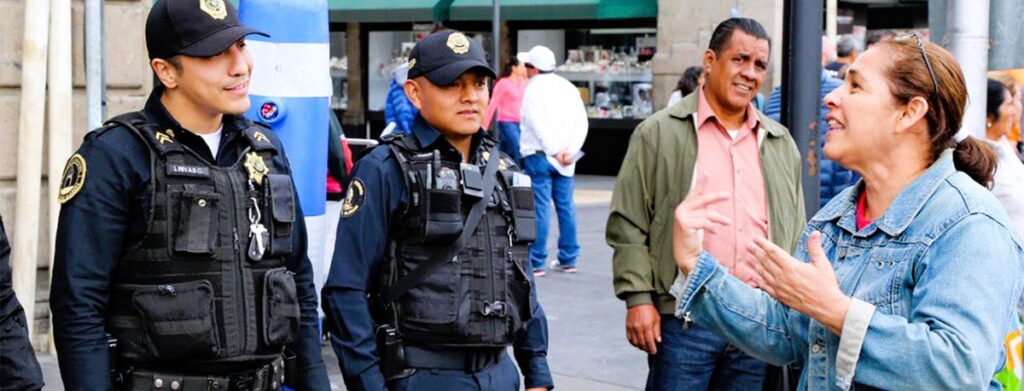
Safety and Security for Expats in Mexico
Let’s address the elephant in the room: safety. The media often paints a scary picture, but the reality for most expats is quite different.
Choosing Secure Neighborhoods
Do your research. Some areas are safer than others, just like anywhere else in the world. Talk to other expats and locals, and trust your instincts when visiting potential neighborhoods.
Home Security Measures
Common security measures include:
- Gated communities or buildings with 24/7 security
- Alarm systems
- Security cameras
- Strong locks and secured windows
Understanding Local Safety
Stay aware, but don’t let fear rule you. Most expats find that by using common sense and staying away from dangerous areas (especially at night), they feel quite safe in their new Mexican home.
Conclusion
Your perfect home in Mexico is waiting for you. All you have to do is take that first step. Start planning your move, reach out to some real estate agents, book that exploratory trip. Your Mexican adventure is about to begin!
